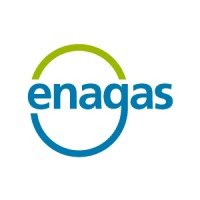National Grid seeks hydrogen and RNG supply
Our analysis shows the great potential of these resources to help deliver the clean energy transition and this RFI is an exciting first step in realizing that potential.

National Grid has issued a request for information (RFI) to better understand renewable natural gas (RNG) and hydrogen availability for its customers in Massachusetts and New York.
One of four pillars in National Grid’s clean energy vision, procurement of RNG and hydrogen will enable the company to deliver a 100% fossil-free gas network for customers unable to electrify.
James Holodak, VP at National Grid, said, “We are eager to hear from suppliers and developers who can help us use existing networks to continue safely and reliably meeting the energy needs of our customers as we make progress toward net zero.”
RNG is already successfully heating homes in the United Kingdom, and trials are underway in Australia. The US is rapidly investing in hydrogen technologies to bring it to scale. The Department of Energy has committed hundreds of millions of dollars to accelerate innovation that would scale up the hydrogen economy over the next decade. Nearly 20 states have advanced policies to enable a clean gas future.
Fighting climate change requires significant greenhouse gas emissions reductions across the board. National Grid is tackling those reductions across the power sector, the transportation sector and the building heat sector, which is responsible for nearly 40% of emissions in Massachusetts and New York.
Combined with targeted electrification and enhanced energy efficiency, a 100% fossil-free gas network can deliver a clean energy future that is more affordable and more reliable than an all-electrification pathway to over 20 million people across New York and Massachusetts.
National Grid’s fossil-free vision will not only achieve a net-zero energy future and achieve the climate goals of the states in which we operate, but it will also provide additional, affordable clean energy choices so no customer or community is left behind in the clean energy transition.
National Grid continues to lead our nation in enabling offshore wind development, and these assets can be used to develop hydrogen through the process of electrolysis. Because the only byproduct of this production process is water vapor, the hydrogen produced is carbon-free. Hydrogen is particularly valuable because it can be stored for future use when conditions are such that our wind or solar assets are not producing high levels of power. This is a fossil-free way to decarbonize multiple sectors including heat, power generation, and transportation.
